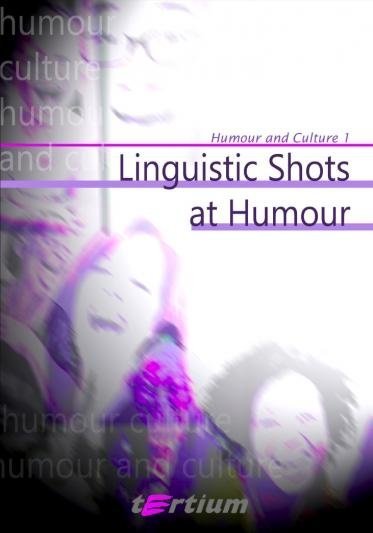-
Załączniki bezpieczeństwa
Załczniki do produktuZałączniki dotyczące bezpieczeństwa produktu zawierają informacje o opakowaniu produktu i mogą dostarczać kluczowych informacji dotyczących bezpieczeństwa konkretnego produktu
-
Informacje o producencie
Informacje o producencieInformacje dotyczące produktu obejmują adres i powiązane dane producenta produktu.Tertium
-
Osoba odpowiedzialna w UE
Osoba odpowiedzialna w UEPodmiot gospodarczy z siedzibą w UE zapewniający zgodność produktu z wymaganymi przepisami.
Nowa anglojęzyczna seria wydawnicza Tertium pod tytułem Humour and Culture ma za zadanie promować badanie związków między humorem a kulturą narodową czy etniczną.
Zamierzeniem Wydawnictwa jest, aby ta seria stała się forum, gdzie można by prezentować zróżnicowane kulturowo podejścia do badań nad humorem, przy założeniu, że badania prezentowane są w lingua franca, jakim jest język angielski.
Wydawnictwo Tertium jest w szczególności zainteresowane publikacją monografii na temat tradycji humoru i badań nad humorem w konkretnych krajach bądź wspólnotach kulturowych.
Pierwszy tom z nowej serii Tertium stanowi pokłosie konferencji na temat humoru w językoznawstwie i folklorze, jaka odbyła się w Szekszárd na Węgrzech w roku 2007.
Tom zawiera 14 najlepszych artykułów z tej konferencji, autorstwa badaczy mających związki kulturowe z 7 krajami: Bułgarią, Chorwacją, Estonią, Polską, Stanami Zjednoczonymi, Węgrami i Włochami.
Tematami artykułów są m.in.
- humor a językoznawstwo kognitywne,
- humor w nauczaniu języków,
- humor audiowizualny, eufemizmy, antyprzysłowia,
- humor w karykaturze, czy mechanizmy humoru werbalnego.
W rezultacie czytelnik otrzymuje ciekawy, zróżnicowany obraz humoru w kulturze.
SPIS TREŚCI:
Melita Aleksa Varga, Robert Wołosz, Deutsche und kroatische Kollokationen aus dem Bereich Humor [German and Croatian Collocations within the Semantic Field of Humour]
József Andor, Frame Shifting and the Status of Key Words in Proverbs and Anti-Proverbs: A Frame-Semantic View
Géza Balázs, "It's Not Funny..." Humour and Aggression
Anneli Baran, You Are so Stupid that Even the Sun Stops Shining at You!' On Hyperbole in Estonian Phrases
Judit Háhn, Verbal Humour and Lewis Carroll: A Linguistic Analysis of Alice's Adventures in Wonderland and Through the Looking Glass
Hrisztalina Hrisztova-Gotthardt, Der Stellenwert von Antisprichwörtern in einer mehrsprachigen Sprichwortdatenbank [Anti-proverbs in a Multilingual Proverb Database]
Zoltán Kövecses, Girding up the Loins. A Cognitive Semantic Analysis of Humorous Expressions
George L. Nagy, Elements of Humour in English Euphemistic Idioms
eljka Nemet, (Un)Translatable Contexts: Humour and Cultural Concepts in the Animated Picture Finding Nemo
Giampaolo Poletto, On the Humour of Young Learners
Roberta V. Rada, Humor - stilistisch betrachtet [Humour from a Stylistic Perspective]
Mihály Riszovannij, Die verkehrte Welt als humoristische Strategie in feministischen Karikaturen ["Reversed Worlds" as a Humour-Inducing Strategy in Feminist Cartoons]
Zsuzsanna Schnell, When the Penny Drops - in the Cognitive Dimension
Éva Varga, (K)ein Grund zum lachen! Phraseologische Modifikation in der Werbesprache [(No) Cause for Laughter! Phraseological Modifications in the Language of Advertisements]


 2 szt.
2 szt.

